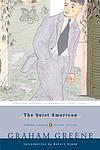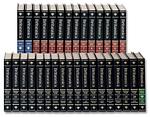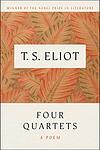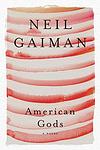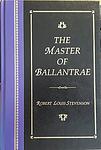The Greatest British "United States" Books of All Time
Click to learn how this list is calculated.
This list represents a comprehensive and trusted collection of the greatest books. Developed through a specialized algorithm, it brings together 300 'best of' book lists to form a definitive guide to the world's most acclaimed books. For those interested in how these books are chosen, additional details can be found on the rankings page.
Genres
The "United States" category for books encompasses literature that is set in or explores the history, culture, and society of the United States. This includes works of fiction, non-fiction, and memoirs that focus on American life, politics, and social issues. Books in this category may cover a wide range of topics, from the founding of the nation to contemporary issues such as race, gender, and immigration. The United States category is a broad and diverse genre that reflects the rich and complex history of the country.
Countries
Date Range
Reading Statistics
Click the button below to see how many of these books you've read!
Download
If you're interested in downloading this list as a CSV file for use in a spreadsheet application, you can easily do so by clicking the button below. Please note that to ensure a manageable file size and faster download, the CSV will include details for only the first 500 books.
Download-
1. Great Expectations by Charles Dickens
A young orphan boy, living with his cruel older sister and her kind blacksmith husband, has an encounter with an escaped convict that changes his life. Later, he becomes the protégé of a wealthy but reclusive woman and falls in love with her adopted daughter. He then learns that an anonymous benefactor has left him a fortune, leading him to believe that his benefactor is the reclusive woman and that she intends for him to marry her adopted daughter. He moves to London to become a gentleman, but his great expectations are ultimately shattered when he learns the true identity of his benefactor and the reality of his love interest.
-
2. The Hitchhiker's Guide to the Galaxy by Douglas Adams
This comedic science fiction novel follows the intergalactic adventures of an unwitting human, Arthur Dent, who is rescued just before Earth's destruction by his friend Ford Prefect, a researcher for a galactic travel guide. Together, they hitch a ride on a stolen spaceship, encountering a range of bizarre characters, including a depressed robot and a two-headed ex-president of the galaxy. Through a series of satirical and absurd escapades, the book explores themes of existentialism, bureaucracy, and the absurdity of life, all while poking fun at the science fiction genre and offering witty commentary on the human condition.
-
3. Brideshead Revisited by Evelyn Waugh
The novel is a nostalgic story about the narrator's involvement with the Flyte family, British aristocrats living in a grand mansion called Brideshead. The story explores themes of faith, love, and the decline of the British aristocracy, primarily through the narrator's relationships with the family's Catholic faith and his complicated friendship with the family's son and his love for the daughter. The novel is set in the backdrop of the time period between the two World Wars.
-
4. The Remains of the Day by Kazuo Ishiguro
The novel is a poignant tale of an English butler, Stevens, who reflects on his life and career during a road trip through the English countryside. As he delves into his past, he reveals his unquestioning loyalty to his former employer, Lord Darlington, and his unexpressed love for the housekeeper, Miss Kenton. The narrative explores themes of dignity, duty, and regret, as Stevens comes to terms with his unquestioning devotion to his employer and the missed opportunities in his personal life.
-
5. Money by Martin Amis
"Money" is a darkly humorous novel that follows the life of John Self, a hedonistic, self-destructive director of commercials, as he navigates the excesses and depravities of 1980s New York and London. His life is filled with overindulgence in food, alcohol, drugs, and women, leading to a downward spiral of self-destruction. The novel is a satire on the excesses of capitalism and the obsession with wealth and materialism, and it also explores themes of identity, self-loathing, and the destructive power of addiction.
-
6. The Power and the Glory by Graham Greene
The novel is set during the Mexican Revolution, focusing on a whisky priest who is on the run from the authorities who have outlawed Catholicism. The priest, who is flawed and sinful, travels across the country to evade capture, minister to the faithful, and find a way to repent for his sins. Despite his moral failings, the priest's compassion and commitment to his faith make him a symbol of hope and resilience in the face of oppression. The book explores themes of faith, redemption, and the human struggle with sin.
-
7. The Rainbow by D. H. Lawrence
The novel explores the lives of three generations of a farming family, the Brangwens, living in rural England in the late 19th and early 20th century. The narrative primarily focuses on the sexual and emotional maturation of Ursula Brangwen, a young woman who rejects traditional societal norms in her quest for spiritual fulfillment and personal independence. The book is known for its vivid depiction of the English countryside and its frank portrayal of sexual desire.
-
8. Cloud Atlas by David Mitchell
This novel is a unique blend of six different stories, each set in a different time and place, spanning from the 19th century South Pacific to a post-apocalyptic future. Each tale is written in a different style, reflecting the time and setting it represents, and they are all connected through shared themes and recurring motifs. The stories are nested within each other, with each interrupted by the next, only to be concluded in the second half of the book. The novel explores themes of predacity, civilization, reincarnation and the eternal recurrence of the same behaviors throughout history.
-
9. Watchmen by Alan Moore
Set in an alternate history where superheroes emerged in the 1940s and 1980s, the story follows a group of retired superheroes who are brought out of retirement after the murder of one of their own. As they investigate, they uncover a plot that could change the course of history and the balance of world power. The book explores complex themes such as the morality of power, the definition of heroism, and the value of human life.
-
10. The Second World War by Winston Churchill
This book provides a comprehensive overview of the Second World War from the perspective of one of its most influential leaders. It covers the entire span of the war, from its origins in the political and economic turmoil of the 1930s, to the major battles and strategic decisions that shaped its course, to its aftermath and impact on the world. The author's unique perspective and firsthand experience, combined with his eloquent and insightful writing, make this a definitive account of one of the most important events in modern history.
-
11. The Quiet American by Graham Greene
Set during the French colonial war in Vietnam, this novel follows a British journalist and a young American idealist who become friends and find themselves in a love triangle with a Vietnamese woman. As the war escalates, the journalist becomes disillusioned with the American's naïve political views and the destructive impact of foreign intervention. The story is a critique of American involvement in Vietnam, exploring themes of love, friendship, and moral ambiguity.
-
12. Encyclopedia Britannica by Encyclopedia Britannica
This comprehensive reference work is a general knowledge English-language encyclopedia. It is written by about 100 full-time editors and more than 4,000 contributors, who have included 110 Nobel Prize winners and five American presidents. The encyclopedia is regarded as one of the most scholarly of encyclopedias, covering a wide range of topics in depth and providing extensive bibliographies.
-
13. The Man Who Mistook His Wife for a Hat by Oliver Sacks
The book is a collection of clinical tales about patients suffering from a variety of neurological disorders. The author, a neurologist, shares his experiences with these patients, whose conditions range from common ailments like amnesia and aphasia, to rare disorders like visual agnosia and Tourette's Syndrome. The stories are both compassionate and insightful, revealing the complexities of the human brain and the resilience of the human spirit, even in the face of debilitating illness.
-
14. Common Sense by Thomas Paine
This influential pamphlet, published in 1776, played a crucial role in persuading the colonists of the Thirteen Colonies to declare independence from Britain. It argues for the democratic system of government, criticizes monarchy and hereditary succession, and advocates for the inherent rights and freedoms of individuals. The text uses plain language to make complex political ideas accessible to the average citizen, promoting the idea that the colonies have a right to be an independent nation.
-
15. Earthly Powers by Anthony Burgess
"Earthly Powers" is a sprawling, complex novel that explores the intertwined lives of a homosexual British writer and an Italian-American Cardinal over the course of the 20th century. The narrative delves into themes of faith, homosexuality, and the nature of evil, while also providing a critique of modern society. It's a vivid tapestry of historical events, including two World Wars and Vatican II, providing a backdrop for the personal and spiritual struggles of its protagonists.
-
16. Four Quartets by T. S. Eliot
"Four Quartets" is a collection of four long poems that delve into the nature of time, perspective, and human experience. The poems explore deep spiritual and philosophical themes, including the struggle between the temporal and eternal, the cyclical nature of life, and the quest for divine understanding. The work also reflects on the devastation of World War II, the passage of time, and the nature of memory and experience.
-
17. Rights of Man by Thomas Paine
This influential work is a passionate defense of the French Revolution and a detailed examination of the concept of human rights. The author argues against the idea of monarchy and hereditary succession, contending that government should be a reflection of the people's will and that it should promote equality and social welfare. The book also explores the role of government in society, the nature of civil liberties, and the importance of a written constitution.
-
18. American Gods by Neil Gaiman
A recently released convict discovers that his wife and best friend died in a car accident. He then meets a mysterious stranger who hires him as a bodyguard. As they journey across America, it is revealed that the stranger is an old god, traveling to rally his fellow forgotten deities to wage a war against the new American gods born from society's modern obsessions with media, technology, drugs, celebrity, and more. The story blends elements of fantasy, mythology, and Americana to explore themes of faith, belief, and the nature of American identity.
-
19. The Slaves of Solitude by Patrick Hamilton
Set in England during World War II, the novel follows a middle-aged woman living in a boarding house, who spends her time navigating the petty squabbles and politics of her fellow residents. Her life takes a turn when she becomes entangled in a love triangle with a charming but manipulative American lieutenant and a young German woman. The book explores themes of loneliness, manipulation, and the struggle for personal freedom in a time of national crisis.
-
20. A Severed Head by Iris Murdoch
In this novel, a London wine merchant is living a seemingly comfortable life with his wife when his world is turned upside down by a series of shocking revelations. His wife confesses to an affair with her psychoanalyst, who is also his best friend, and plans to leave him. As he grapples with this betrayal, he begins an affair with his sister-in-law, only to discover that she is also involved with his wife's lover. The protagonist is forced to confront his own selfishness and immaturity as he navigates this tangled web of relationships.
-
21. On Beauty by Zadie Smith
This novel is a contemporary, multicultural exploration of family life, love, and identity. It follows the lives of two mixed-race families, the Belseys and the Kipps, who are linked by their shared professions in academia and a complex web of marital and extramarital relationships. The story is set against the backdrop of Wellington, a fictional New England town, and explores themes of race, class, and cultural clash. It also delves into the world of academia, examining the politics and conflicts that arise in that environment.
-
22. The Loved One by Evelyn Waugh
The book is a satirical examination of the American funeral industry, set in Los Angeles. It follows the experiences of a young British poet working at a pet cemetery who becomes entangled in the superficial and bizarre practices at a funeral parlor for humans, as well as a love triangle with a cosmetician and her colleague. The narrative delves into themes of cultural clash, the commercialization of death, and the vacuity of the American way of life, all delivered with a sharp, darkly comedic edge.
-
23. Old Glory by Jonathan Raban
In this travelogue, the author embarks on an ambitious solo journey down the Mississippi River, navigating the complex currents of both the waterway and the American heartland. Steering a 16-foot aluminum motorboat, he delves into the diverse cultures, histories, and landscapes of the river, encountering a vivid cast of characters along the way. The narrative captures the essence of the United States during a particular period, exploring the intersection of the past and present, the urban and rural, and the mythic versus the everyday. Through his eyes, readers experience the mighty river's role as both a conduit for adventure and a mirror reflecting the nation's soul.
-
24. Modern Times by Paul Johnson
"Modern Times" is an in-depth historical analysis of the 20th century, covering major events, movements, and figures that have shaped the modern world. The author critically examines the impacts of World War I and II, the Cold War, the rise of totalitarian regimes, and the influence of religion and ideology on politics and society. The book also explores significant scientific and technological advancements, and their effects on human perception and behavior. It provides a comprehensive understanding of the complexities and contradictions of the 20th century, and how they continue to influence the 21st century.
-
25. The Master of Ballantrae: A Winter's Tale by Robert Louis Stevenson
"The Master of Ballantrae: A Winter's Tale" is a captivating adventure story set in Scotland during the Jacobite rebellion of 1745. The narrative revolves around two brothers, James and Henry Durie, who are torn apart by their conflicting loyalties to the English king and the exiled Stuart court. The elder, James, is presumed dead after a lost battle, but returns years later to claim his inheritance, leading to a bitter feud that spans continents and decades. The story is filled with duels, treachery, shipwrecks, and buried treasure, exploring themes of love, hate, revenge, and the destructive power of obsession.
Reading Statistics
Click the button below to see how many of these books you've read!
Download
If you're interested in downloading this list as a CSV file for use in a spreadsheet application, you can easily do so by clicking the button below. Please note that to ensure a manageable file size and faster download, the CSV will include details for only the first 500 books.
Download









